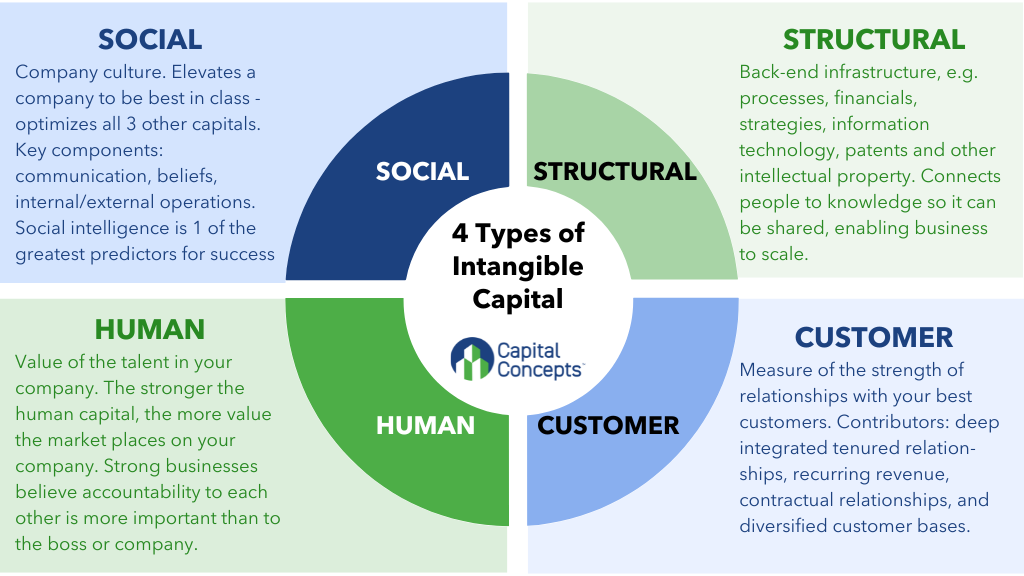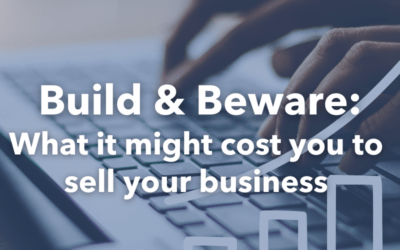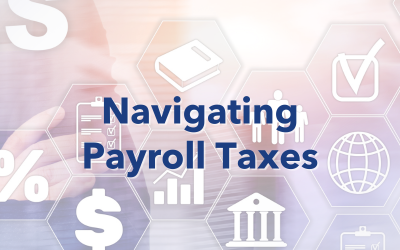One of the most common miscalculations owners of businesses make is estimating the value of their business. It’s difficult to be objective about something you’ve invested so much of yourself into. That’s why prospective buyers, banks, and investors will insist on having a valuation done by a professional. As we discussed in our article on the formula for an effective exit, you must determine the actual current value of your business before you can plan to maintain or increase it.
Methods To Determine Business Value
Because businesses vary widely, banks and valuation professionals use a range of methods to conduct a valuation. Some are more appropriate for service-based businesses with high levels of intangible capital (like intellectual property), while others work best for manufacturers, retailers, and others with large amounts of inventory, equipment, property, and other tangible assets.
- Income approach: This method estimates the value of a business based on expected future earnings, cash flow, and profitability. You can determine this a few ways. The two most common are discounted cash flow (DCF) and capitalization of earnings.
- Market approach: Another method will be familiar to people who’ve had a home appraised. It looks at comparable businesses that sold recently and uses their selling prices as a basis for valuing the business. You can use multiples such as price-to-earnings (P/E) or price-to-sales (P/S) ratios.
- Asset-based approach: This method looks at the value of a business’s assets minus its liabilities and is most applicable to asset-heavy businesses like manufacturing companies. Service-based businesses rarely have sufficient assets to use in this form of valuation.
- Combination approach: This method uses a combination of the above methods to arrive at a more accurate valuation of the business.
Challenges to Business Valuation
Even with multiple approaches available, determining the value of a business is still complex. The type of business, the purpose of the valuation (e.g., divorce, acquisition, qualification for loans or investment), the availability of data, current market conditions, industry trends, and the competitive landscape all contribute.
Lack of information
If your business is in a new or unique niche, it may be difficult to find data on comparable businesses. Or, your business might lack its own internal information. Failing to maintain accurate and up-to-date financial records makes it difficult to assess the financial health of a business and make an accurate valuation.
Here’s a quick test. Can you run a Profit & Loss or Balance Sheet report today? If you can’t pull this when asked, this is something you must remedy right away. Your bookkeeping must be current before anyone can determine what your business is worth.
Economic conditions
Both challenging and beneficial economic conditions will impact the value of a business. The economy’s health shows up in changes in interest rates, inflation, and market volatility, and both healthy and unhealthy economies can .pose a challenge to completing a business valuation. You may be able to overcome challenging conditions if you can prove your business will be unaffected. For example, “front line” businesses didn’t have to shut down during the early months of the Covid-19 pandemic, so they didn’t experience the harm that less essential businesses did.
Industry-specific factors
Different industries require different methods and may include unique factors to consider. For example, valuing a technology startup will require different approaches and considerations than valuing a multi-generational manufacturing company. If you operate in a unique niche, it may take some extra research and analysis to determine your business’s value.
Changes in ownership or management
Any change can have a significant impact on the value of a business. Whether you’ve brought in new leadership due to growth, lost some staff to turnover, or reorganized the company, these are major changes. We’ve seen companies where the leadership team had changed so many times, no single person knew the entire back end of the financial system except for us (external consultants!). Personnel costs affect your financial reports, as well. If other transitions have happened recently or will happen in the near future, you will need to account for that.
Intangible assets
Intangibles like brand reputation, customer relationships, intellectual property, and human capital can be difficult to measure as they may lack clear market value or historical data. They also can dramatically change the value of a business if they’re particularly strong (or weak). If you have a strong logo and brand reputation, this can be incredibly valuable (think about Nike, Apple, and FedEx, all of which are instantly recognizable).

Most IP exists in one of four categories: patents, copyrights, trade secrets, and trademarks. For example, your business is vulnerable if your intellectual property (IP) resides only in your head or isn’t protected by one of these IP vehicles. Valuation professionals will look for documentation, patents, or other mechanisms to protect your IP, because otherwise, its value disappears when you leave.
Essentially, someone determining the value of a business will work to gain a thorough understanding of the business, its financial and operational history, and the broader economic and industry context. If you have questions or concerns about your business’s value, send a message or complete a request for a complimentary review with our team. They can assess your business, advise on improving its value, and guide you through the work required.
Have you read our previous articles in this series on Exit Planning?
Related Articles
Build & Beware: What it might cost you to sell your business
You Just Sold Your Business for Millions – So Why Isn’t That in Your Bank Account? The papers are signed. The deal is closed. After years of hard work, you’re ready to celebrate your big payday. But as you finalize accounts and tie up loose ends, you realize the...
Navigating Payroll Taxes
Tax deadlines are creeping up, demanding your attention and time. You’re still busy making sure things run smoothly day-to-day; filing business taxes can feel like the last complication you want to deal with.
If You Don’t Have a Leadership Transition Plan, Your Exit Could Fail
If you Don’t Have a Leadership Transition Plan, Your Exit Could Fail
Need Fresh Eyes On Your Business?
We offer complementary consultations to help you identify the areas where you could most quickly and easily improve your business’s performance, value, and profitability. Request one today.





0 Comments